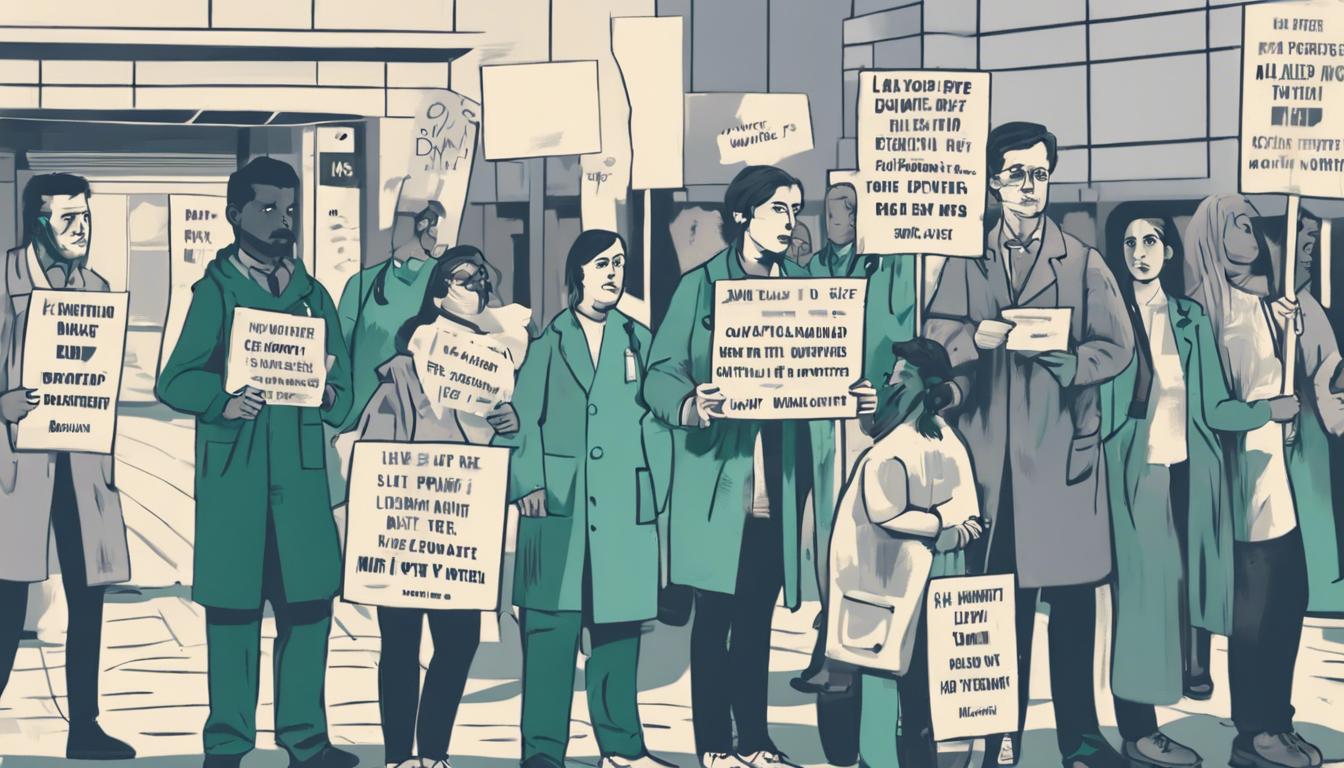Junior doctors in England demonstrate overwhelming support for continued strike action over the next six months amid pay disputes, while the NHS tackles prolonged waiting times for gender care, impacting patient well-being and care delivery.
Junior doctors in England have decisively voted to extend their strike action for the next six months in their dispute over pay, showcasing a 98% approval rate for continued walkouts among those who voted. The British Medical Association (BMA), representing the doctors, is adamant about reversing pay cuts and has urged the Health Secretary for a revised pay offer to mitigate further disruptions within the NHS. The ongoing dispute, striving for a 35% pay increase, has already led to an estimated cost of £3 billion to the NHS, amid concerns from NHS Providers about the impact on patient care.
In a related healthcare crisis, prolonged waiting times for NHS gender care in the UK are being criticized for severely affecting transgender patients’ mental health and well-being. Tragic outcomes, including the death of Alice Litman who waited nearly three years for treatment, underscore the urgency for improvements in care delivery. With some patients facing delays of up to five years for initial appointments, there is a call for enhanced recruitment and training in gender services to address this bottleneck. The NHS has acknowledged these challenges and is planning a review of adult gender services to expedite access to care.
The government has expressed disappointment over the junior doctors’ decision to continue strikes, emphasizing the adverse effects on NHS services and patient care despite a proposed pay rise of up to 10.3%. As the healthcare system grapples with these intertwined issues of staff pay disputes and service delays, the resolution appears contingent on further dialogue and negotiation between healthcare professionals, government officials, and healthcare authorities.













